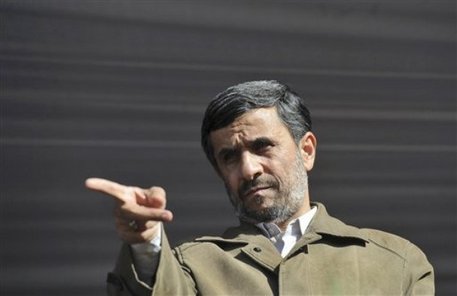
Ray Takeyh believes it's high the West linked human rights to Iranian nuclear negotiations:
As part of any negotiations with the West, the Islamic Republic should be asked to amend not just its nuclear infractions but also its human rights abuses. This entails releasing political prisoners, lifting the restrictions on civil society groups and allowing publication of banned newspapers. Unless Tehran accedes to such measures, it must continue to confront economic pressure and political isolation. Should the United States take such an unequivocal stand as part of its diplomatic outreach, it can further stimulate domestic dissent in Iran. In the meantime, an isolated, weakened regime faced with economic decline, political ferment and international ostracism maybe tempted to offer important concessions to escape its predicament. The path to disarmament and democracy lies in making common cause with the Green Movement and making Iran's behavior toward its citizens a precondition to its reintegration in the community of nations.
This is all well and good, but how exactly - assuming the Green Movement is indeed as viable and organized as Takeyh asserts - do you get profligate human rights abusers such as China to go along with such preconditions? Sanctions will only work so long as Tehran runs out of markets to run to, and China will have to play a big part in the enforcement of such restrictions. (Getting Beijing to play ball on this has already proven difficult, and that's without the human rights language proposed by Mr. Takeyh.)
He goes on to cite the 1975 Helsinki Accords as an historical example of human rights-linked diplomacy, but I fail to see the parallel. Iran, needless to say, is not the Soviet Union, nor does it present the same imperative threat to the Western world as did the Soviets. The Helsinki Accords were a multilateral effort to prevent a world war over borders and sovereignty; a cartographic crisis plan, of sorts.
The situation in Iran simply isn't the same, and I don't know that leaders in Beijing, Moscow or even Brussels feel the same sense of urgency and danger as the key players in Helsinki once did.
(AP Photo)











